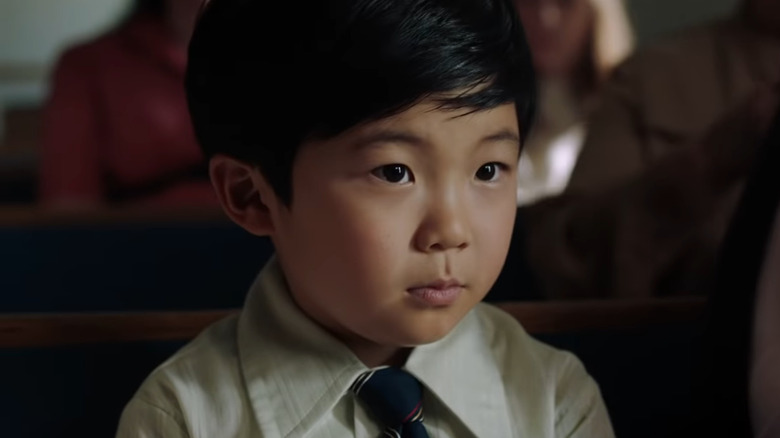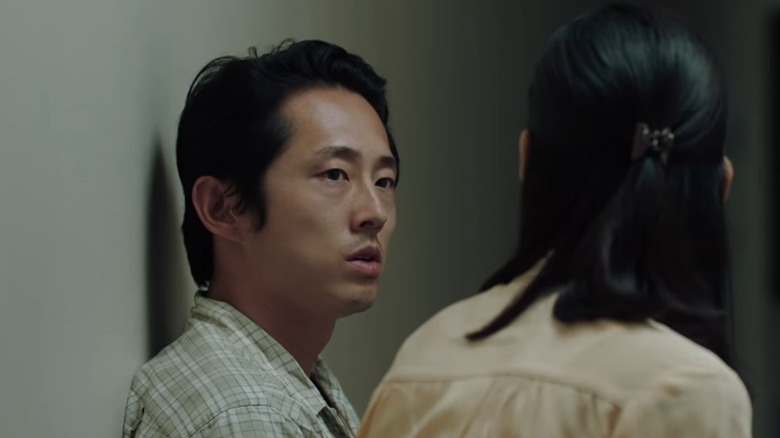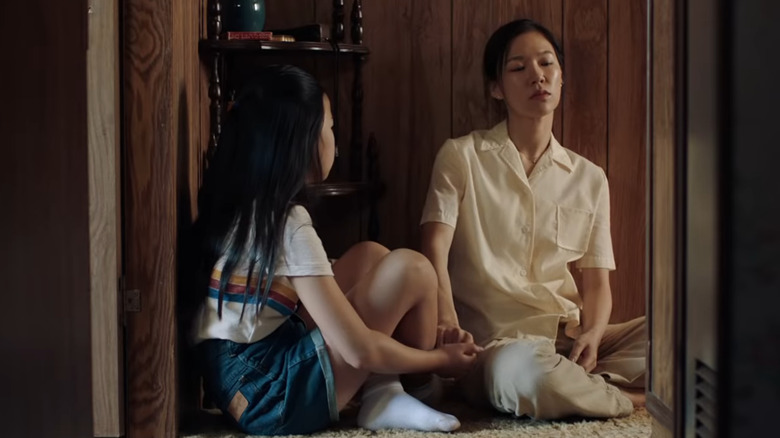Minari Review: An Act Of Remembrance, Fueled By Love
There's an old quote, usually attributed to Mark Twain, that has become a rallying cry for multiple generations of scribes: "Write what you know." Although we've all been blown away by the imaginations of those who compose detailed legends of faraway planets, enormous dragons, musclebound superheroes and the like, sometimes nothing can compare to the meticulous, observed memories of a person's life experience. Because ultimately, that's what film is about: leaving yourself at the opening credits and being transported into another life, another experience, another reality — the more convincing the details, the better.
This comes to mind as you try to put into words the experience of watching Minari, a vivid autobiographical film by Lee Isaac Chung that makes you feel like you're in the back seat of the family station wagon in 1980s Arkansas, moving alongside your brother and sister to an overgrown farm in the middle of nowhere. Father has a dream, mother is frustrated beyond all belief, but the kids manage to find beauty in the small trailer they'll now call home. Ultimately, it's a film about the American dream, with a Korean family building their home in a land where decades later some dummy would probably still tell them to go "back where you came from," but nevertheless determined to try.
Which is another part of Minari that makes it a minor masterpiece. While there are moments where tension seems to be bubbling under its surface, the film is as much about racism as it is the heart problems of son David (Alan Kim). These are threats presenting themselves as background noise — to be monitored, of course, to be worried about at times — but which don't manifest themselves in the profound moments a clumsier film would depict. Minari is a film about remembrance, and the sour taste which can sometimes be in our mouths during the moments we'll later recall with fondness.
Directing his remembrances
Minari begins with Jacob (Steven Yeun from The Walking Dead, in a world-weary, transformative performance) relocating his family to something vaguely resembling a farm, envisioning vegetables as far as the eye can see. We are told that he selected the location because it has the best dirt in America; we are also told that the farm's previous owner went bankrupt and committed suicide. Yet Jacob is filled with a mix of optimism, determination and quiet resolve that is as American as you can get. Immediately, you can't help but cheer for this young Korean family to make their dream come true.
His wife Monica (the excellent Yeri Han) is concerned — about her children, about their leaky new home, about her husband's bothersome tendency to put the farm's needs before theirs. Soon, she convinces him to bring in grandma (Korean film star Yuh-jung Youn, previously seen on our shores in Netflix's Sense8) to live in the trailer and watch the kids while their parents spend the afternoons working at a factory separating male and female chicks. Young David hates that his grandmother shares his room and complains that she smells like Korea — she is anything but traditional, spending her days watching wrestling, teaching the kids how to curse and play cards — but her growing friendship with David is one of the most touching aspects of the film.
Also worth recognition is Will Patton, last seen devouring scenery in Swamp Thing, doing a complete 180 as the disheveled, hard-working Paul. He carries a cross down the street on Sundays because "it's my church," speaks in tongues and performs impromptu exorcisms in the fields, but because Jacob isn't scared away by such actions he finds a loyal friend and employee in a person most of the locals openly mock. It's a fascinating portrayal, likely based on a real person Chung's family knew, that seems so specific and painted with love that no imagination could ever seem to bring Paul to life so effectively.
Youn's performance as grandma Soonja has a deserving spotlight thrust upon it — she simultaneously represents the rearview mirror in the dreams of this family and the uncharted road ahead — and the film does a commendable job staying away from the typical "mother-in-law" trappings. She's rough around the edges, blunt when she needs to be (honestly, who cares what a little kid wears to church?), and gives the baby birds enough strength in their wings to fly when the time is right. It's a vivid reminder that it takes an entire family to raise a child, and serves as a loving testament to the immeasurable value of a grandparent.
But the real star here is the details, and much of the film feels like we're small children peeking around the corner, glimpsing the world through a youngster's eyes. We get a glimpse of father after a day in the fields, unable to lift his arms above his head and begging mother for a bath. We see a snake down at the creek, eavesdrop on conversations at church, watch as mom tries to stretch a dollar a bit further. It's enough to make you feel like you can taste the food, hear the creek, smell grandma.
Of course, things are never easy. Jacob and Monica's job sexing chickens seems as monotonous as one can get, and they did it for over a decade in California before their relocation; locating water for the crops is a constant struggle; without giving anything away, the family is threatened by several issues of health. But the film reminds us that any given day can suddenly become the best day — followed by the kind of worst day that can bring people closer together than ever. The moments kids remember don't always unfold on birthdays and holidays, but often on a random afternoon, punctuated by a memory that father brought produce into the doctor's office that day, and mother got mad at him about it.
An American dream
Lee Isaac Chung's film is also fueled by love — a love of family, of country, of dreams. Again, we all love a good science fiction tale, but how can you compete with the love that permeates someone's memories of the good, bad, and monotonous that made their family who they are? The writer/director has already led an extraordinary life (from farmer to filmmaker), and these are the remembrances of the people who made Chung who he is today — and a chance to fully immerse yourself in those memories in a very powerful way.
This is the part of the review where you'd typically want to say something critical about a film, but Minari is so confident in what it wants to be, and achieves it so effectively, that trying to make it into something else would be like blaming a marshmallow for being a marshmallow. The film is a remembrance, an appreciation, the capturing of a specific moment for a specific family. As a viewer, you feel thankful that Minari takes its time stretch out, and the film feels very lived-in and authentic.
Props to cinematographer Lachlan Milne (Love and Monsters), who brings the film a visual beauty reminiscent of early David Gordon Green movies like George Washington and Undertow. In tone and subject matter, the movie is reminiscent of Jim Sheridan's excellent 2002 film In America, which similarly depicted two parents of young children trying to pursue their American dream in a new country, as seen through the eyes of those children. Minari could make an excellent double feature with that film someday, or perhaps 2012's Beasts of the Southern Wild, another tonal cousin.
The title comes from an East Asian plant that the family's grandmother brings with her, plantings its seeds in a shaded patch by the creek where she and David share some of their most special moments. We're told that the perennial herb is resilient, versatile, and a valued ingredient. Minari is an appropriate title, then, for this intimate recollection of a family's struggle to achieve its dream.


